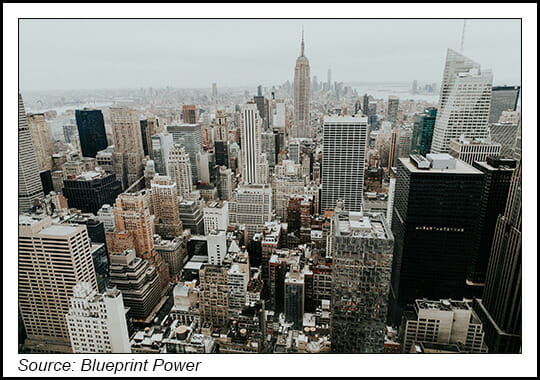BP plc has snapped up U.S.-based Blueprint Power, whose technology is centered around reducing emissions in urban markets using flexible energy power networks.
The New York City firm, founded in response to energy regulations after Hurricane Sandy in 2012 knocked out power to the region, uses bespoke algorithms to optimize the energy efficiency of buildings. Commercial building owners then may sell surplus energy stored in batteries or power generated on site using technology such as batteries and solar panels.
“Blueprint’s technology presents an opportunity to help decarbonize commercial real estate, help real estate owners meet their environmental goals, and give them access to new revenue streams,” BP noted Thursday.
Blueprint now works with five of New York’s...



